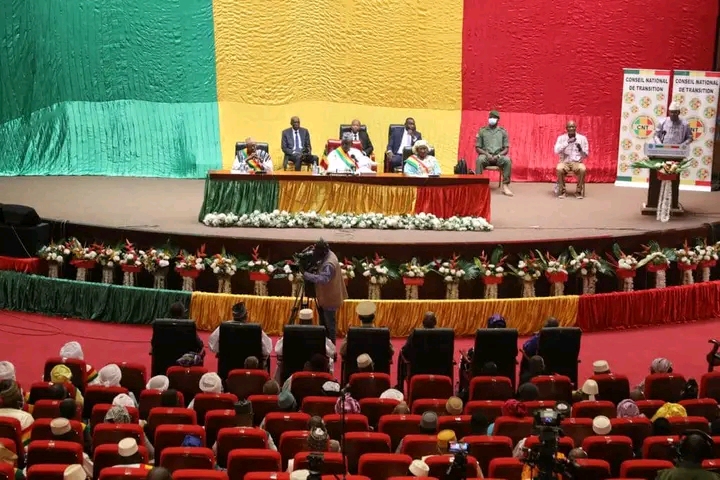In the administration of a state, there are three institutions that are established to provide day-to-day governance. These institutions are the executive, the judiciary, and the legislature.
The legislative arm of government is responsible for making laws and it is normal for there to be a lot of disagreement before an agreement is reached on a particular law that is beneficial to the voters and the country as a whole.
However, situations in this part of governance can degenerate into shouting, arguments, and fights.
For some time now, these disagreements have been ending in fights, and the question has been raised whether the actions of legislators should be taken too seriously. One wonders if legislators are acting in part to show their constituents that they are working hard for their cause. But do these leaders have to do it with a fight?
Parliament is a hotbed of democratic and passionate political debate. These debates should take place in a context of respect for opinions and others, says Léon KOBOUDE, an aspiring legislator. “Despite the verbal outbursts, the MP must maintain a posture worthy of his or her office,” he advises.
“As a citizen, it is our responsibility to say no to fights that debase the parliamentary institution, debates, and politics in general. If we do not want politics to be discredited, we must avoid humiliating behaviors,” Mr. KOBOUDE stressed.
According to the aspiring parliamentarian, he wants to participate in the improvement of the daily life of the people through fair, responsible and beneficial laws for all generations.
Benin’s legislature is currently unopposed and it is expected that the next elections, which will take place in 3 months, will see the opposition running.
In the last legislative election in 2019, opposition parties asked their supporters to boycott the election, where they were unable to field candidates for administrative reasons.
At the end of 2018, the parliament approved a new electoral code to simplify the political landscape and avoid the proliferation of parties (more than 250 in a country of 12 million people).
The Electoral Commission then ruled that only the two parties allied to the government met the eligibility requirements tightened by the new electoral law.
This decision effectively prevented the political opposition from fielding candidates.
The member of MOELE-BENIN (the party Mouvement des élites engagées pour l’émancipation du Bénin), calls on the newly elected legislators to improve their communication with the population. “It is important to explain the stakes of each law and the consequences of its application on the daily life of the population,” he noted.
Also in opposition to these recurring acts of legislators is Mr. Cephise BEO AGUIAR a political Analyst and Consultant. Who stated that, these actions of legislators are regrettable and reflect the moral state of certain elected politicians. Adding that “It is a pity to have to come to blows, even though parliament, in the spirit of the Greek agora, is a place for contradictory exchanges where only the strength of ideas, arguments and the quality of reasoning prevail.”
According to him, it is necessary to strengthen the moral, civic, and political training of elected representatives, government officials and all citizens in order to meet the challenges of democracy on the continent.
In his view, parliamentarians must not deviate from their legal missions, which are generally the representation of the people, the control of government action, and the voting of laws.
“In the function of representing the people, it is indecent to engage in brawls on the political field.” He underscored. Indicating that it becomes an element of devaluation of the function because no matter what, the positions taken are very often subjective depending on the political camp in which the elected representatives find themselves.
These positions Mr. BEO AGUIAR noted are therefore self-serving and do not allow for any attempt to understand, analyse or take a step back from the texts to be voted on.”
Legislative fights
In September, newly installed members of Senegal’s National Assembly were seen getting into physical fights during the election of a new president of the National Assembly.
The new parliamentary session reportedly heated up as the parties failed to agree on the electoral procedure.
After hours of debates and arguments, tensions rose and violence broke out as lawmakers fought and threw bottles and other objects at each other.
Police were called in to secure the voting process and had to forcibly remove several legislators who were trying to grab the ballot boxes.
A few weeks after this brawl in the French-speaking West African country, Kenyans were in the news on 6 October 2022 after a scuffle broke out following a deadlock over the coalition with the majority in the House.
Opposition lawmakers were angered by the Speaker’s decision to recognize the ruling Kenya Kwanza (Kenya First) coalition with 179 MPs as having the majority.
The opposition has 157 members, the Speaker said.
Most of the debate centered on the placement of 14 MPs whose parties were initially part of the opposition Azimio la Umoja (Quest for Unity) coalition, but who have since switched allegiance.
The opposition MPs argued that the constitutional deadline for leaving the coalitions had not yet been reached.
One opposition MP tried to seize the Mace – the symbol of parliamentary authority – to express his displeasure with the decision.
The live broadcast of the session was cut off after the fight broke out on Thursday night.
Kenyan politics is known to be highly partisan and physical fights are common in parliament. Kenya has made headlines on several occasions for openly engaging in fights in its National Assembly.
These two countries are not the only African countries to have made headlines for engaging in such fights, but countries such as Ghana, Nigeria, Uganda, Malawi and South Africa, to name a few. Internationally, countries such as the United States, Ukraine, Turkey, Japan, Jordan and Taiwan are also among the few legislators who have engaged in these fights.
Story By: Florence D.Y. GBOLU







Dang k'y d nhn 100 USDT
July 20, 2024Your point of view caught my eye and was very interesting. Thanks. I have a question for you.